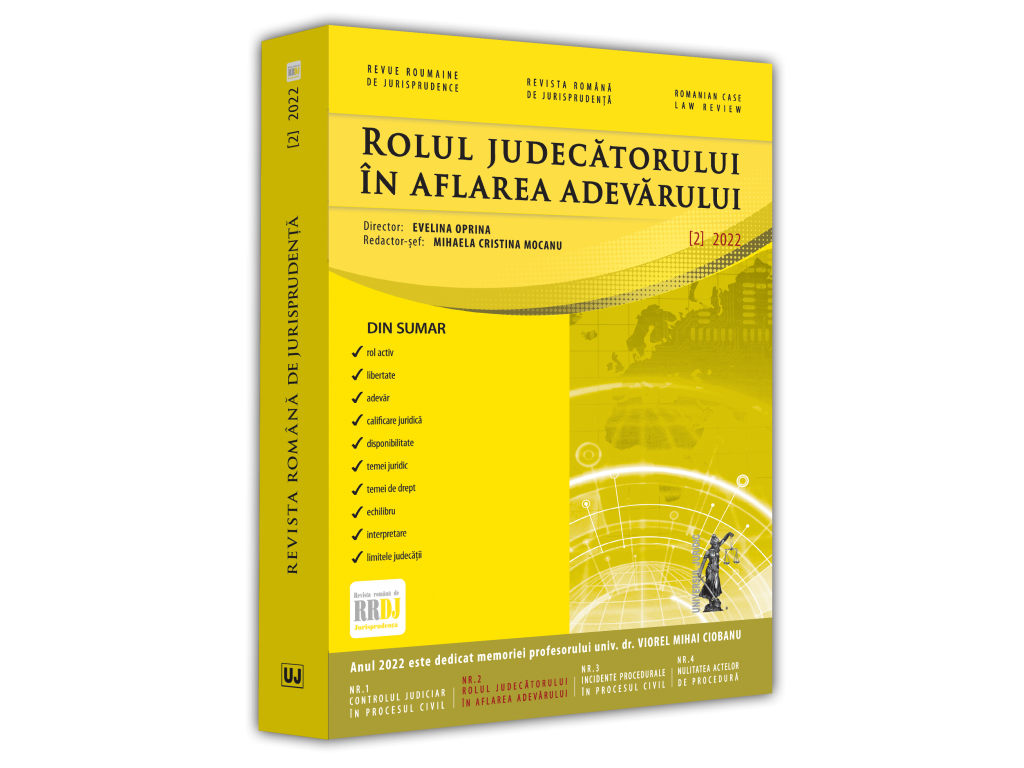The role of the court in identifying and establishing the legal basis. Compliance with the principle of availability. Interpretation of Article 22 para. (4) of the Civil Procedure Code
JURISPRUDENȚĂ COMENTATĂ ŞI ADNOTATĂ
Abstract
It follows from the provisions of Article 22 of the Civil Procedure Code that a party's erroneous invocation of a text does not affect the court's right to determine and apply the correct text to the factual situation substantiated by the party. An exception is the situation provided for in paragraph. (5) of art. 22 of the Civil Procedure Code, but such a situation is not found in this case.
The fact that the parties relied on different articles or different rules on the interest sought to be awarded in the case does not constitute a breach of the limits of the court's jurisdiction, but it does show that the parties did not reach an agreement establishing a particular legal classification of the action, as their positions differed before the first court as regards the text on the basis of which the amount of interest is to be determined.
In other words, the plaintiff has applied to the court for an order to pay damages on the basis of the principle of full compensation. As regards the amount of that interest, he referred to the provisions of Article 4 of GEO No 13/2011 and the defendant relied on the application of Article 3 of the same act. In those circumstances, the appellant's reliance on another article of GEO No 13/2011 to substantiate his claims does not constitute an amendment to the cause of action, but a clarification of the claims that were defectively and incompletely substantiated in law before the first instance.
The provisions of Article 478 para. (4) of the Civil Procedure Code are relevant to the hypothesis where, for example, in the context of a defective, imprecise drafting of the application or the lack of an active role of the first instance, it was not observed that the main claim was attached, implicitly, another claim, in the absence of which the main claim either does not have a correct resolution or receives an incomplete resolution.








